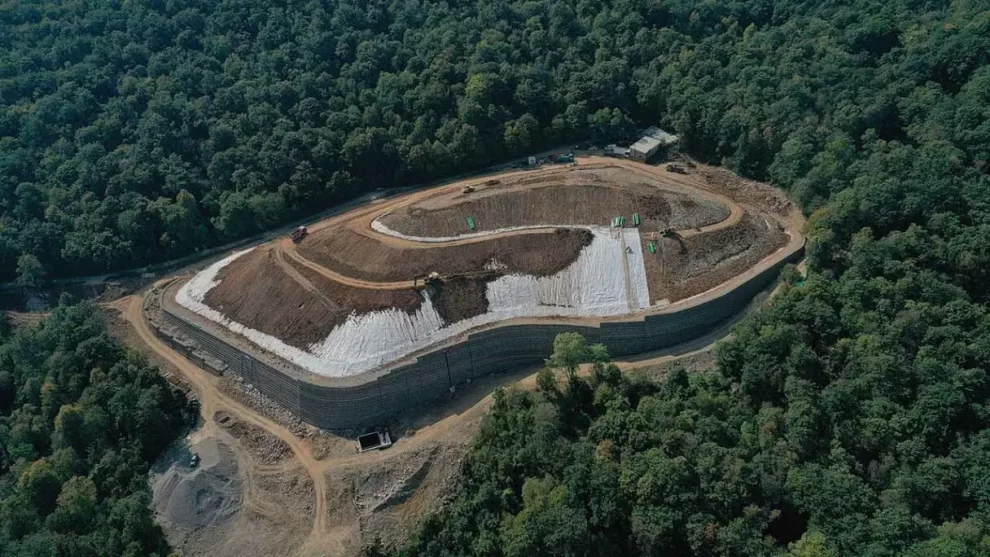Croatia plans to install its first waste incineration facility within the Bikarac waste management center, near the Adriatic coast in the Šibenik-Knin County.
The use of waste to produce energy is fueling intense debates in public. So far the opponents of waste-to-energy technology have had more success than its supporters. A waste incineration proposal was the main reason why green groups criticized the recently presented waste management plan of Zagreb, as it envisages the production of solid fuel from waste.
Waste management center (CGO) Bikarac is one of 11 that Croatia plans to build as part of its waste management system.
CGO Bikarac will produce solid fuel from waste
New Minister of Economy and Sustainable Development Damir Habijan visited CGO Bikarac together with Deputy Director of the Environmental Protection and Energy Efficiency Fund Mirko Budiš and Šibenik’s Mayor Željko Burić.
The ministry noted that CGO Bikarac was put into operation in 2021 and that its capacity is 20,000 tons per year. Like other centers in the coastal region of Dalmatia, it will produce solid fuel from waste, and the City of Šibenik has submitted a request for cofinancing project documentation for a power plant, the ministry said in a press release.
The city asked for EUR 3.5 million, and the Environmental Protection and Energy Efficiency Fund will cover eligible costs.
Habijan: It is the first example of circular waste management in Croatia
The plant for the thermal treatment of waste will be built within CGO Bikarac, so all the produced energy can be distributed to consumers in the Podi industrial zone, which will be expanded, the ministry explained.
Damir Habijan said one of his first decisions as a minister was about a power plant in CGO Bikarac. The preparation of the project documentation, in his words, will be financed by the fund.
The power plant will be the first example of circular waste management in Croatia as waste will become a source of energy that can be used in the Podi industrial zone, Habijan stressed.
According to the website of the City of Šibenik, the project is for a power plant for the thermal treatment of fuel from waste and dried sludge.
Habijan said CGO Bikarac could become an example for all the local authorities in Croatia, arguing that its management has shown the biggest progress in circular waste management.
Burić: Šibenik has solved the problem which annoys the most cities in Croatia
Of note, CGO Bikarac serves the territories of Šibenik, Knin, Vodice, Drniš, Skradin and 15 smaller municipalities or a total of 110,000 residents.
Šibenik’s Mayor Željko Burić said the waste-to-energy project is another major investment that would make Šibenik one of the cities that solved the waste issue.
The city already solved the problem that most Croatian cities and towns are struggling with as it surpassed all others by far in the circular management of waste, he asserted.
Waste incinerators are rare in SEE, but there are plans
Waste-to-energy facilities are rare in Southeastern Europe. For example, Slovenia has one, and Serbia’s first combined heat and power plant of the kind started operations in February 2023.
However, there are many plans for such systems. The project in Sofia is an example that an investment is uncertain even when financing is secured. After a court ruling in September 2023, the project was terminated.
A few days ago, local authorities in Kraljevo, Trstenik, and Vrnjačka Banja in Serbia announced they are considering different waste-to-energy solutions for their waste management system.
There is also an idea to install waste incinerators in Niš and near Prahovo in Serbia.
In mid-2022, Slovenia said it would build three facilities, immediately prompting backlash, so the next government decided to reduce their number.
There are plans for incinerators in Sarajevo as well, in Bosnia and Herzegovina. The projects in Sisak in Croatia and Brčko in BiH have been stopped.







































